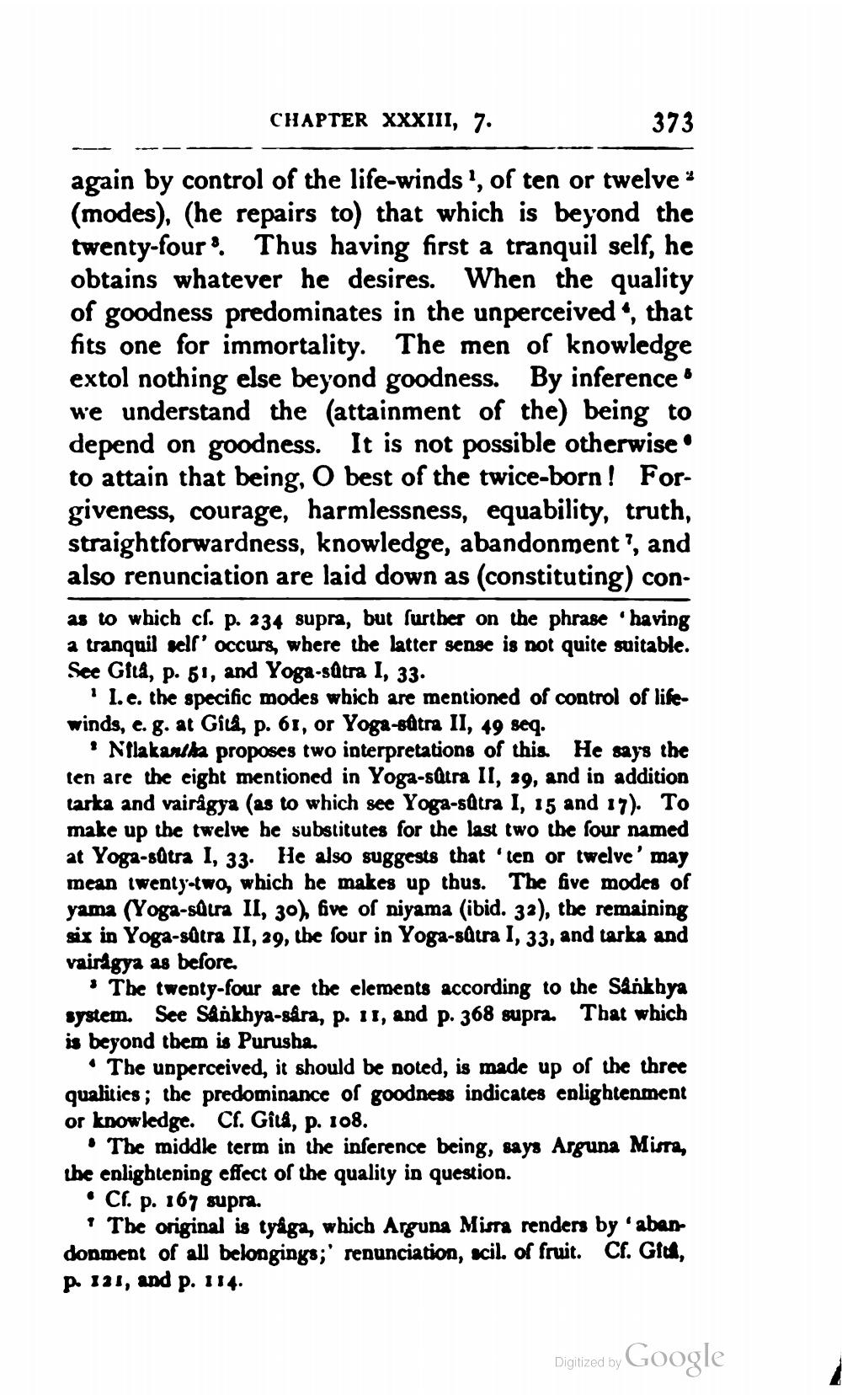________________
CHAPTER XXXIII, 7.
373
again by control of the life-winds', of ten or twelve : (modes), (he repairs to) that which is beyond the twenty-four: Thus having first a tranquil self, he obtains whatever he desires. When the quality of goodness predominates in the unperceived, that fits one for immortality. The men of knowledge extol nothing else beyond goodness. By inference we understand the attainment of the) being to depend on goodness. It is not possible otherwise to attain that being, O best of the twice-born! Forgiveness, courage, harmlessness, equability, truth, straightforwardness, knowledge, abandonment?, and also renunciation are laid down as (constituting) conas to which cl. p. 234 supra, but further on the phrase 'having a tranquil sell' occurs, where the latter sense is not quite suitable. See Gitá, p. 61, and Yoga-sätra I, 33.
'l.e. the specific modes which are mentioned of control of lifewinds, e.g. at Gits, p. 61, or Yoga-sâtra II, 49 seq.
' Nflakanska proposes two interpretations of this. He says the ten are the eight mentioned in Yoga-sQira II, 29, and in addition tarka and vairágya (as to which see Yoga-sätra I, 15 and 17). To make up the twelve be substitutes for the last two the four named at Yoga-8Qtra I, 33. He also suggests that 'ten or twelve' may mean twenty-two, which he makes up thus. The five modes of yama (Yoga-sûura II, 30), five of niyama (ibid. 32), the remaining six in Yoga-stra II, 29, the four in Yoga-s@tra I, 33, and tarka and vairagya as before
The twenty-four are the elements according to the Sankhya system. See Sankhya-sára, p. 11, and p. 368 supra. That which is beyond them is Purusha
• The unperceived, it should be noted, is made up of the three qualities; the predominance of goodness indicates enlightenment or knowledge. Cf. Gita, p. 108.
• The middle term in the inference being, says Arguna Misri, ibe enlightening effect of the quality in question.
• Cf. p. 167 supra.
" The original is tydge, which Arguna Misra renders by 'abandonment of all belongings;' renunciation, scil. of fruit. Cf. Gick, p. 131, and p. 114.
Digitized by Google




